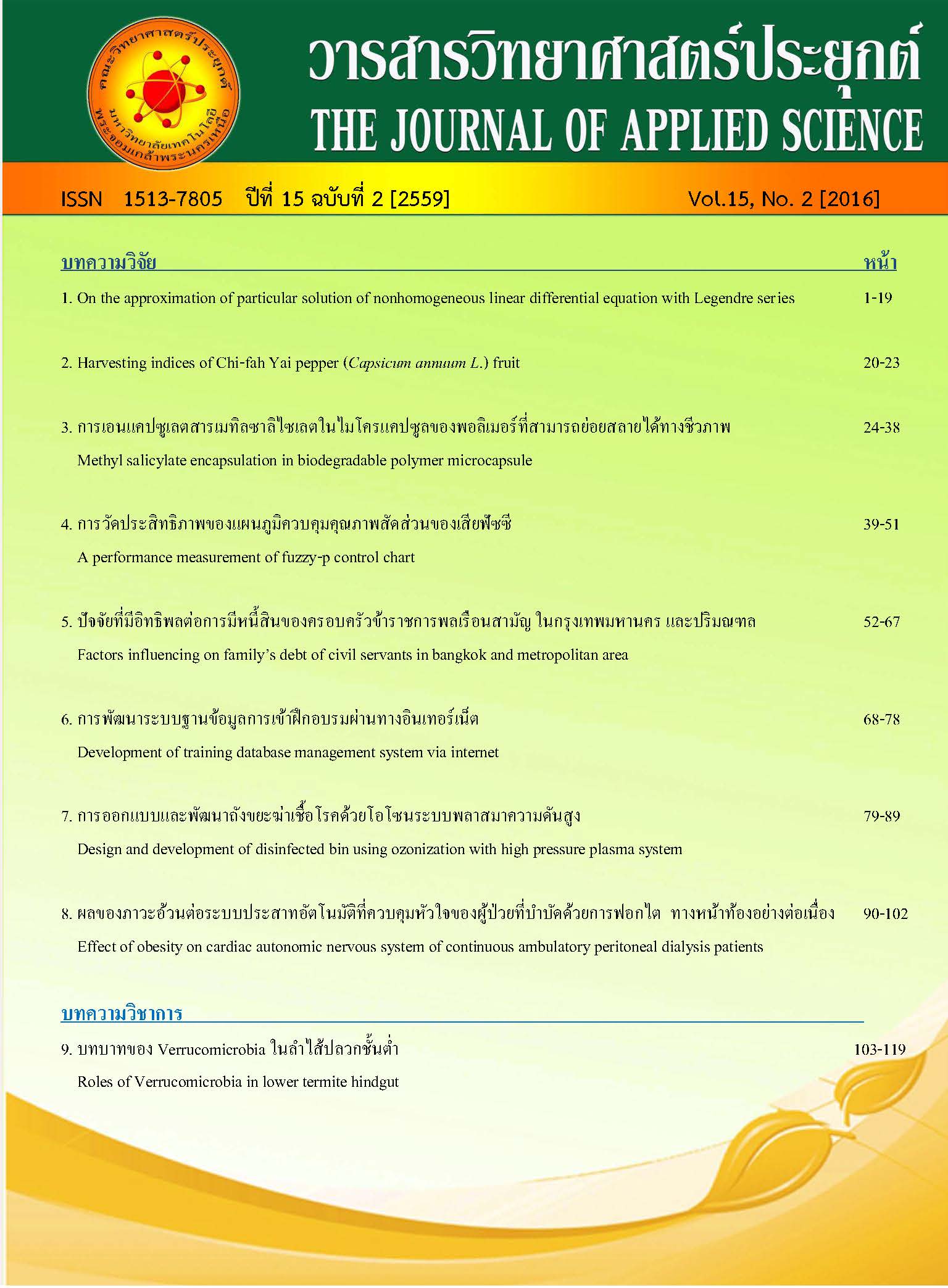Methyl salicylate encapsulation in biodegradable polymer microcapsule
Keywords:
polymer microcapsule, emulsion/solvent evaporation method, methyl salicylate, biodegradable polymerAbstract
This research aimed to study the effect of poly(vinyl alcohol-co-vinyl acetate) (P(VA-co-VAc) emulsifier at various degree of hydrolysis (%HD) on fabrication of polymer microcapsule containing 2 different biodegradable polyester matrices: polylactic acid (PLA) and poly(butylene adipate-co-terephthalate) (PBAT), to be used for encapsulation of methyl salicylate (MS). P(VA-co-VAc) emulsifier with 3 different percent hydrolysis at 35.95, 67.89 and 82.64 had been selectively used to prepare suspensions of PLA and PBAT microcapsules via emulsion/solvent evaporation method. P(VA-co-VAc) emulsifier with 67.89 and 82.64 %HD were found to provide smaller size of microcapsule particles with higher dispersion of water medium. In addition, both PLA and PBAT microcapsules were also gave high percent encapsulation of methyl salicylate up to 93.5 and 86.6 for PLA and PBAT microcapsules, respectively.


